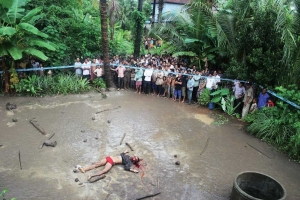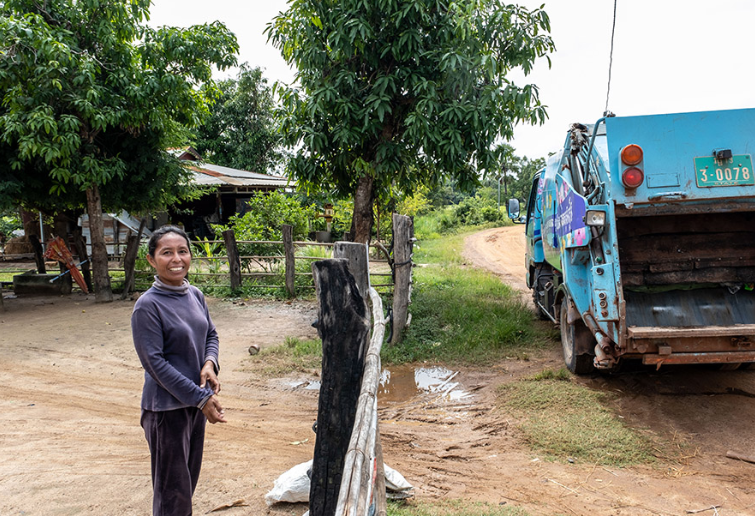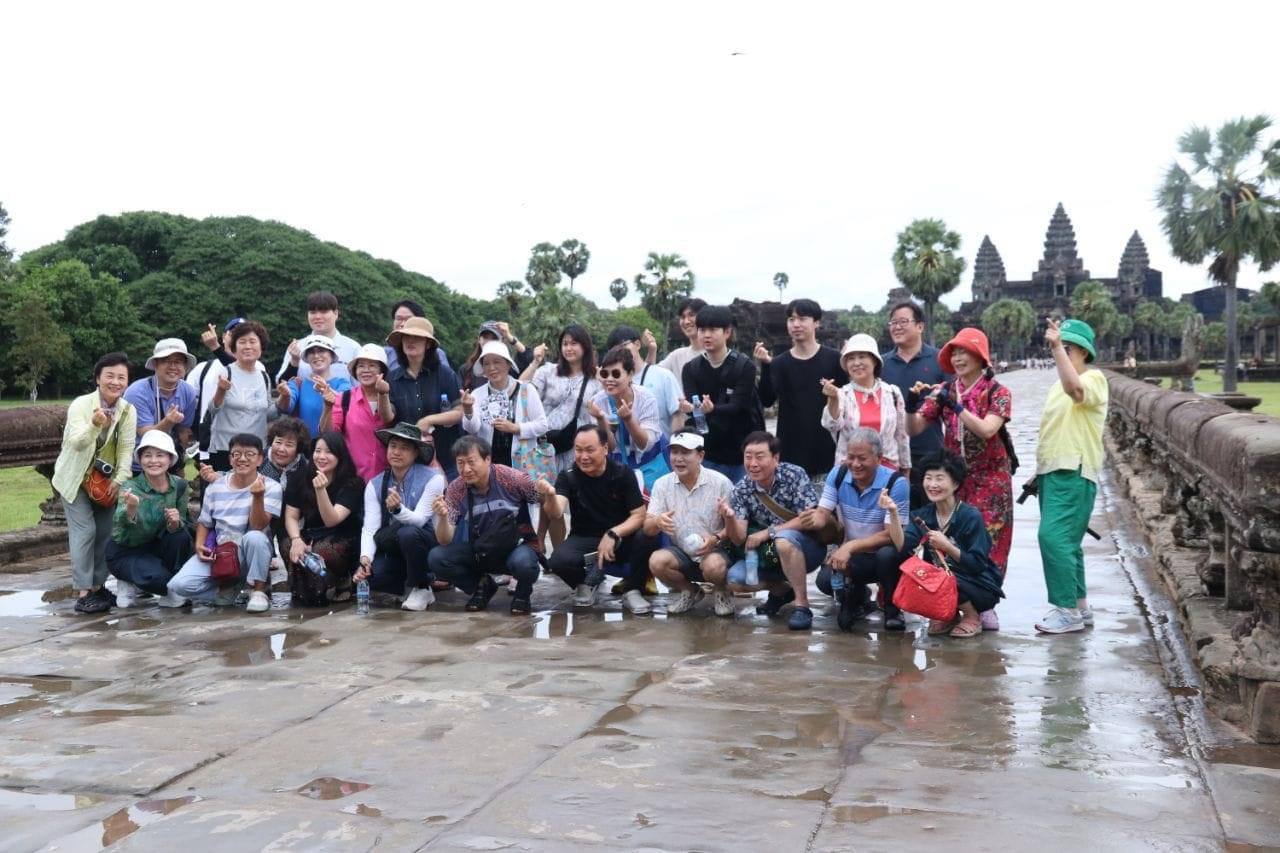Police said Laing Pises, 48, used the scythes to partially dismember his wife, Sek Thou, and stepdaughter, 20-year-old Muon Chenda, a university student who returned from studying in Phnom Penh on Sunday to the family home in Prey Chor district’s Thmor Poun commune.
Prey Chor district police chief Keo Seang Horn described how Pises quickly silenced his family’s cries for help.
“They were nearly beheaded,” he told the Post. “The wife’s throat was slashed while she shouted for help, but she could not be helped in time and died in the house in a pool of blood.”
Police attempted to coax Pises from the wooden house, he added, but Pises responded by severing his wife’s hand and displaying it to the assembled crowd.
The crowd, which had swelled to about 500 villagers at this point, began pelting the house with rocks in reply, knocking Pises to the floor. The 30 police officers then at the scene stood back as several villagers rushed up the stairs and began to beat him.
“The people were furious. Our 30 policemen could not intervene, and a few police got slight injuries. It is the cruellest scene I have ever witnessed,” Seang Horn said.
The motive for the initial slayings of the two women may never be revealed, police said, adding that Pises was thought by locals to have been possessed by spirits in the past, suggesting he may have suffered from mental illness.
Rumours circulated that Pises had raped his stepdaughter prior to the attack and that Thou had tried to intervene, prompting the vicious assault.
Doctors had not yet carried out a post-mortem on Chenda’s body to determine if she had been sexually assaulted, according to commune chief Ngen Navy. However, provincial police chief Chhay Kimson said the initial investigation suggested rape as a possible cause for the attack.
“The mother went to the pagoda and left her daughter with the stepfather and he raped her,” Kimson alleged. “When his wife caught him red-handed, they quarreled and the husband [attacked] both of them.”
The extrajudicial killing that followed the two women’s murders was the latest in a series of attacks involving enraged mobs in recent years that have seen no prosecutions brought against the perpetrators, rights groups said.
Police statements to the Post yesterday suggest that will likely be the case here as well.
Despite the large number of witnesses and a video posted online that graphically depicts the mob killing, Kimson said police would not seek to question any suspects.
“We will not question or arrest any villagers, because there were about 500 and that’s simply too many. We cannot question them all. We are afraid the villagers would react angrily if we investigated,” he said.
Ny Chakrya, chief investigator for rights group Adhoc, said the police response to the killings was yet another demonstration of the absence of justice in Cambodia.
“It’s a total breakdown in the rule of law. So far, there have been no prosecutions of mob attack suspects, and there have been plenty of attacks in the past,” he said. “It completely undermines the credibility of the government to deal with violent crime. Until [police] begin to prosecute violent crimes like this one, they will lack legitimacy. It’s unacceptable.”
Additional reporting by Daniel Pye






























